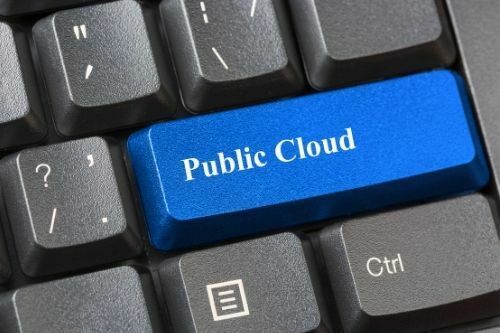Table of Contents
- Q. What are the various forms of data employed in cloud computing?
- Q. What are the platforms for large-scale cloud computing?
- Q. What are the various layers of cloud computing?
- Q. What is on-demand functionality, and how is it provided in cloud computing?
- Q. What is the difference between a private cloud and a public cloud?
- Q. What are hybrid clouds?
- Q. What’s the difference between elasticity and scalability?
- Q. Explain the role of cloud computing system integrators.
- Q. What are the databases on the open-source cloud computing platform?
- Q. Please provide some instances of large cloud providers and databases.
- Q. What is the difference between cloud and traditional data centers?
- Q. What is the purpose of the API in cloud services?
- Q. What are the benefits of cloud computing?
- Q. What are the different data centers in cloud computing?
- Q. What do you mean by VPN? What is it made up of?
- Q. What are the fundamental clouds in cloud computing?
- Q. What are the most important things to consider when choosing a cloud computing platform?
- Key takeaways
- FAQs
The usage of shared computer resources is referred to as ‘cloud computing.’ These resources include applications, processing, storage, networking, development and deployment platforms, and business processes. Cloud computing offers standardization and automation, making the use of computer resources easier. In this cloud computing interview questions blog, we’ll go over some of the most common questions that recruiters from most companies ask during a cloud computing job interview.
Q. What are the various forms of data employed in cloud computing?
Answer- In cloud computing, multiple data types, such as emails, contacts, images, and blogs, exist. Data is growing at an exponential rate, prompting the creation of new data types to accommodate this expansion. For example, if you want to store video, then you need a new data type.
Q. What are the platforms for large-scale cloud computing?
Answer- For large-scale cloud computing, the following platforms are used-
- Apache Hadoop
- MapReduce
Q. What are the various layers of cloud computing?
Answer- The cloud computing hierarchy is divided into three segments.
- Infrastructure as a service (IaaS) provides cloud infrastructure in terms of memory, processor, and speed, among other things.
- Platform as a service (PaaS): It gives developers access to a cloud application platform.
- Software as a service (SaaS) enables customers to access cloud apps without having to install anything on their computers. These apps remain in the cloud.
Q. What is on-demand functionality, and how is it provided in cloud computing?
Answer- Cloud computing allows users to access virtualized IT resources on demand. It is accessible to subscribers only. It provides adjustable resources through a shared pool. Networks, servers, storage, applications, and services are all part of the shared pool.

Q. What is the difference between a private cloud and a public cloud?
Answer– Private clouds are used to keep operational plans and other sensitive information safe. It is a fully working platform that may be owned, controlled, and confined to a single company or sector. Because of security concerns, most businesses have switched to private clouds. A hosting company usually uses a virtual private cloud.
The public clouds are open to people for use and deployment. For example, Google, Amazon, etc. The public clouds concentrate on a few layers, such as cloud applications, infrastructure, and platform markets.
Q. What are hybrid clouds?
Answer- Hybrid clouds are a mix of public and private clouds. It is chosen above both clouds since it uses the most secure method of cloud architecture implementation. It combines the benefits and traits of both worlds. Businesses can construct their cloud and delegate control to others.
Q. What’s the difference between elasticity and scalability?
Answer– Scalability is a feature of cloud computing that allows it to accommodate rising workloads by expanding resource capacity proportionally. The architecture takes advantage of scalability to deliver on-demand resources if traffic increases the demand. Whereas elasticity is a property that allows for the dynamic commissioning and decommissioning of enormous amounts of resource capacity. It is determined by the rate at which resources are made available and how they are used.
Q. Explain the role of cloud computing system integrators.
Answer– A system integrator develops a plan for a complex process, such as a cloud platform design. Integrators have complete expertise in data center construction, resulting in a more accurate hybrid and private cloud network.

Q. What are the databases on the open-source cloud computing platform?
Answer- Open source cloud computing platform databases include MongoDB, CouchDB, and LucidDB.
Q. Please provide some instances of large cloud providers and databases.
Answer– The three major examples of large cloud providers and databases are-
- Google BigTable
- Amazon SimpleDB
- Cloud-based SQL
Q. What is the difference between cloud and traditional data centers?
Answer– The cost of the traditional data center is higher than the cloud because, in traditional databases, there are overheating problems and some software and hardware issues.
Q. What is the purpose of the API in cloud services?
Answer– APIs (Application Programming Interfaces) are used in cloud platforms for the following reasons-
- It gives an alternative to writing a full-fledged program.
- It allows one or more apps to communicate with one another.
- It develops apps and connects cloud services to other systems.
Q. What are the benefits of cloud computing?
Answer– The following are the most significant benefits of cloud computing-
- Cost savings- It benefits the corporate sector’s investment usage. As a result, it saves money.
- Scalable and reliable- It aids in the development of scalable and reliable applications. Scaling used to take months, but today it takes much less time.
- Saves time- It helps to save time when it comes to deployment and maintenance.
Q. What are the different data centers in cloud computing?
Answer– The 2 types of data centers in cloud computing are-
- Containerized data center
- Low-density datacenter
Q. What do you mean by VPN? What is it made up of?
Answer– The term VPN refers to a virtual private network. VPN stands for virtual private network, and it ensures data security throughout cloud communication. You may turn a public network into a private network using a VPN.

Q. What are the fundamental clouds in cloud computing?
Answer– In cloud computing, there are three main clouds-
- Professional cloud
- Personal cloud
- Performance cloud
Q. What are the most important things to consider when choosing a cloud computing platform?
Answer – The key things to consider when choosing a cloud computing platform are-
- Compliance
- Data loss
- Data storage
- Continuity of operations
- Uptime
- Data integrity
Read more: Google Cloud’s Student Success Services
Key takeaways
- Cloud computing relies entirely on the internet. It is the next step in the Internet’s evolution.
- Cloud computing makes use of the cloud to give services to users whenever and wherever they need them. Businesses use cloud computing to meet the demands of their customers, partners, and suppliers.
- Cloud computing allows businesses to treat their resources as a group rather than as individual resources.
- Preparing for your cloud computing interview with the above questions will help you ace the interview.
We hope you enjoyed reading this blog. In case of any queries or more information on the most commonly asked cloud computing interview questions, reach out to us or drop a comment below!
Like this blog? Read next: Frequently asked interview questions | A guide to preparing well!
FAQs
Q1. Who invented cloud computing?
Answer- Cloud computing is credited to Joseph Carl Robnett Licklider, who also developed ARPANET in the 1960s to link people and data from anywhere at any time.
Q2. Is C++ used in cloud computing?
Answer- C++ is one of the easiest and most popular programming languages to learn in case you want to construct high-performance cloud-based apps and become a cloud specialist. This programming language provides programmers with complete system control. It’s also a cross-platform language, making it one of the most widely used programming languages.
Q3. Is there coding in cloud computing?
Answer- To learn about the cloud, you don’t need any coding knowledge. You can perfect your programming abilities while learning the cloud. AWS, for example, is a prominent cloud platform. You don’t need to know how to code to get started.






